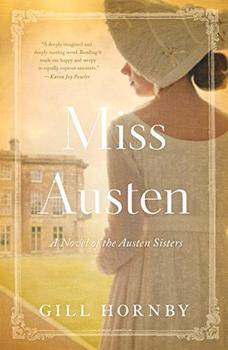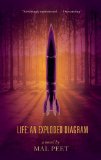Summary | Excerpt | Reading Guide | Reviews | Beyond the book | Read-Alikes | Genres & Themes | Author Bio

A Novel
by Brian HallThis is one of the best novels I've read in a
long time. It is hard to imagine gleaning more pleasure
from a book than I did from Fall of Frost - a novel that works on every possible level. For its
too-short duration, I was completely immersed in its world,
the emotional landscape of Robert Frost. Yet I also read it
with enough critical distance to marvel, open-mouthed, at
the skill with which Brian Hall constructed the book.
Fall of Frost is a character study in the deepest sense,
a spelunking into the psychological ferment behind Frost's
poems. And it is simultaneously an extremely sophisticated
meditation on literary form: a novel about poetry which is
itself built like a series of exploded and distended poems;
an exploration of the writing process that arises from
sensitive readings of Frost's work; a fictionalized
biography which puts the artificiality of its own method on
display (making it an implicit antidote to this tiresome era
of the false memoir). And to think that Hall did all this
with one hand tied behind his back, prevented by the Frost
estate from reprinting any of the poet's later work.
Hall makes transcendent art from Frost's melancholic mind
the way Frost himself made poetry from the many tragedies of
his long life. He locates the dark center of Frost's work in
his relationship with his wife Elinor. Beneath even the
horror of losing four children and committing both his
sister and his daughter to mental hospitals lay the
inexpressible sadness of his failure to connect with the
woman he loved so much. Every poem he wrote was for her.
Hall writes, "Once a poem pleases her, he doesn't want to
hear a peep of complaint from anyone else. It's her
poem, and don't you say a word against it." Yet their
marriage broke when their first-born son Elliot died at age
four, and Frost's every attempt to reach out to Elinor hurt
her more. Hall figures her as Eurydice to his Orpheus, slain
by his art but whose suffering only spurred him to yet more
generative outpourings of poetry.
And then there is the "wonderfully true" fact that on the
same day in 1962 that Nikita Khrushchev met with Robert
Frost in a dacha on the Black Sea, he also gave the order to
supplement the intercontinental ballistic missiles he had
sent to Cuba with nuclear warheads, and then retired to a
beach chair to listen to a minion read One Day in the
Life of Ivan Denisovich. This curious, little-known
episode from the very end of Frost's life captured Hall's
imagination and he uses it as a delicious counterpoint to
his portrayal of the private Frost. What was America's
foremost poet doing in that dacha? What did he have to say
to the crazed leader of America's sworn enemy? Frost's
improbable mission was at once political—to suggest a
solution to the crisis over Berlin—and poetical. Cultural
differences aside, Robert Frost felt enormous kinship with
the "ruffian" in Khrushchev but also saw something higher in
him. "It's that part that Frost must appeal to, the imperial
side. Make him see his greatness, seize it, become it. Dream
him into being, as a true emperor." He failed utterly.
Hall's causal connection between Frost's visit and
Khrushchev's order for nuclear weapons may be speculative,
but President Kennedy's irritation over what he perceived to
be Frost's bumbling of a diplomatic mission was real and
deeply hurtful to the poet.
Hall raises such speculation to high art. His novel gets at
Frost's character not with the certainty of the biographer
but with the elliptical suggestiveness of the poet. Each
short chapter revolves around a single scene, and Hall
builds into each one circulating motifs that eventually
settle into stately patterns. Here, in miniature, is an
example of the kind of convergences that go into the making
of one of Hall's chapters and one of Frost's poems. Frost is
talking a walk through Amherst in 1934, kicking up dead
leaves and thinking of his daughter's death in childbirth.
He looks with impatience and disgust at the sea around him of dead and dying leaves, and a new word occurs to him: ‘autumn-tired.' He remembers a dream he had a few weeks ago, about a plane. ‘Falling leaf.' He thinks of Margery, and his heart flutters like a leaf on a branch, wind-shaken, threatening to let go….He opens his eyes; kicks his way homeward. The sun is setting, and he's got a poem to write.
The poem to which Hall refers is 'A Leaf
Trader' ("All summer long I thought I heard them whispering
under their breath / And when they came it seemed with a
will to carry me with them to death"), which Hall is not
allowed to quote. But he has intimated it to me and infused
it with life, and I feel replete.
Terrible punning title (which comes from an Emily Dickinson
poem). Even worse book jacket. Superb novel. Please read it.
![]() This review was originally published in The BookBrowse Review in April 2008, and has been updated for the
April 2009 edition.
Click here to go to this issue.
This review was originally published in The BookBrowse Review in April 2008, and has been updated for the
April 2009 edition.
Click here to go to this issue.

If you liked Fall of Frost, try these:

by Gill Hornby
Published 2021
For fans of Jo Baker's Longbourn, a witty, poignant novel about Cassandra Austen and her famous sister, Jane.

by Mal Peet
Published 2013
Can love survive a lifetime? With its urgent sense of history, sweeping emotion, and winning young narrator, Mal Peet's latest is an unforgettable, timely exploration of life during wartime.
Your guide toexceptional books
BookBrowse seeks out and recommends the best in contemporary fiction and nonfiction—books that not only engage and entertain but also deepen our understanding of ourselves and the world around us.